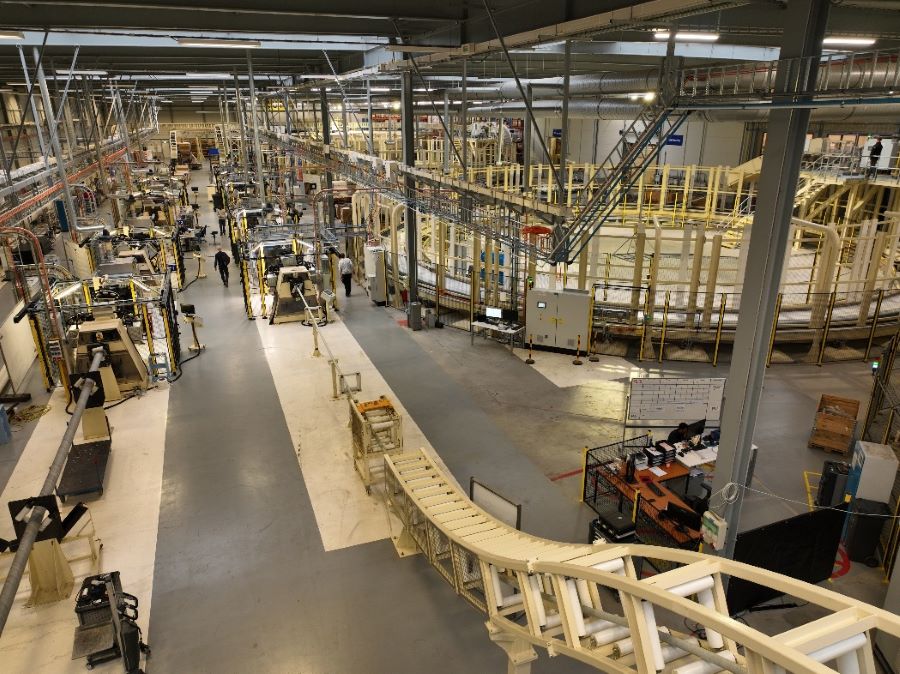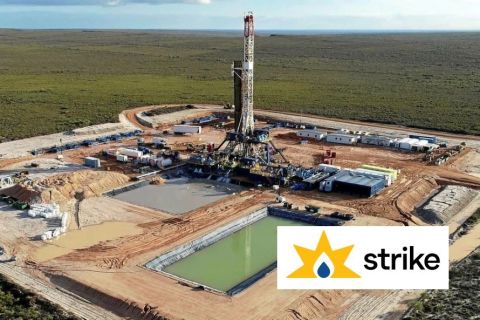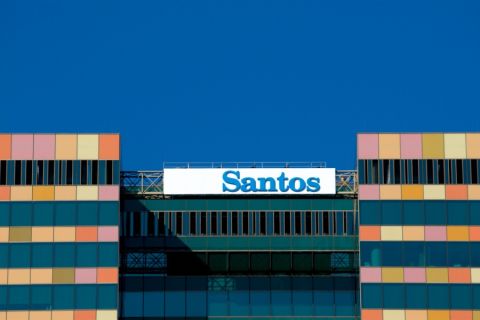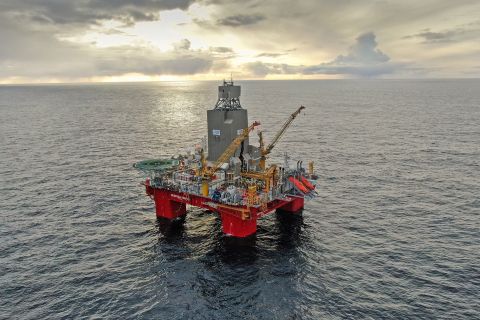From increased production at Jubilee offshore Ghana to a contract for LNG pre-treatment, below is a compilation of the latest headlines in the E&P space.
Tullow’s Ghana output grows
Tullow Oil had strong operating, drilling and completion performance in Ghana in 2022, the company said in its January trading statement.
The company recorded 97% operational efficiency at the Jubilee field offshore Ghana with production averaging 83,600 bbl/d in 2022. A production well and three water injectors were brought online in early 2022, which contributed to output.
In the second half of 2022, two wells were drilled in the Jubilee South East area, and a third well was being drilled at the time of the update. The wells will go online in the second half of the year after they are tied-in to the Jubilee South East Project subsea infrastructure in the middle of the year, according to the company.
The project remains on schedule. Tullow expects Jubilee oil production to exceed 100,000 bbl/d as up to six new wells go online.
Tullow said production from the TEN fields averaged 23,600 bbl/d in 2022. Enyenra Field production increased after a new production well was brought online in September 2022. No new wells were brought online at Ntomme Field, but pressure support from gas and water injection resulted in steady production, Tullow said. While two wells were drilled in the Ntomme area, they were economically unviable and not completed. Tullow plans infill drilling in the TEN fields, particularly in Ntomme, as well as to carry out phased development of new areas near existing infrastructure.
Wassana production to resume
Valeura Energy announced in an operations update on Jan. 24 that the company will be able to resume production at its Wassana oil field in the Gulf of Thailand.
The Ingenium mobile offshore production unit (MOPU) that serves the License G10/48 field has been formally recertified for use as a production and processing facility for crude oil.
Additionally, the MT Jaka Tarub crude oil storage vessel is undergoing planned modifications in dry dock, which are expected to be completed in early February. After the modifications are complete, the vessel will mobilize to the Wassana Field to allow production operations to resume. Valeura targets initial oil production rates of up to 3,000 bbl/d with plans to increase production to 4,500 bbl/d as a result of the five-well infill drilling campaign planned to begin in the second quarter of 2023. Crude oil will be processed at the MOPU and stored in a leased Floating Storage and Offloading vessel.
Valeura holds 89% interest in the field, and partner Palang Sophon holds the remaining 11%.
NSTA, GUH highlight offshore opportunities
The North Sea Transition Authority (NSTA) said on Jan. 23 that a study conducted with Global Underwater Hub (GUH) indicated a wave of opportunities are coming for the U.K. offshore energy supply chain.
Information supplied to the NSTA and GUH by operators show that seven near-term projects will require 30 new wells and 194 km of pipeline. The core study https://www.nstauthority.co.uk/media/8726/nsta-guh-research-final.pdf also showed that more than 5,000 vessel days and nearly 2,500 rig days will be needed for the projects. Much of the work will begin in 2023 or 2024, the NSTA said.
The NSTA and GUH also analyzed environmental statements for five additional near-term projects as part of the wider study. Those projects would require a further 17 wells, 128 km of pipeline, around 3,400 vessel days and 1,400 rig days.
Eight of the 12 projects included in the wider study are Avalon, Cambo, Captain EOR Phase II, Jackdaw, Murlach, Rosebank, Talbot and Teal West.
Nabors buys MindMesh
Nabors acquired engineering technology firm MindMesh and the downhole simulation and modeling technologies the MindMesh team has developed, Nabors announced on Jan. 25.
Plans call for the integratation of several digital modeling and visualization technologies complementary to Nabors’ Smart Suite of drilling automation and digitalization products, Nabors said. The technology will advance Nabors’ ability to predict drilling problems in real time, said Brett Schellenberg, Nabors vice president of digital solutions.
“There is a significant degree of variability that still exists in drilling. That is a challenge we need to overcome,” he said. “MindMesh has a product that can be integrated into and enhance our existing performance tools.”
MindMesh’s RiMo digital engineering platform consumes critical data and leverages physics, AI- and machine learning-driven models and data visualization. The RiMo Real-Time Digital Twin platform performs multiple workflows including solving drilling dysfunctions in real time using data-driven simulation and predictive analytics. RiMo also offers post-job analytics.
“One goal for 2023 is to embed a basic engineering workstation leveraging MindMesh into the RigCLOUD ecosystem,” Schellenberg said.
MindMesh co-founder and CTO Raju Gandikota joined Nabors as a director in the controls and automation group.
API, Well Done team up on orphan wells
The API announced on Jan. 25 that it signed a memorandum of understanding (MOU) with the Well Done Foundation related to the proper plugging of orphaned or abandoned natural gas and oil wells.
Alexa Burr, API’s vice president for standards and segment services, said in a news release the partnership will help ensure “American natural gas and oil is produced responsibly from start to finish.”
The MOU aims to promote cooperation and exchange of information about standardization practices and procedures related to plugging of wells, including API standards, guidelines and recommended practices.
TechnipFMC wins Petrobras subsea services work
TechnipFMC announced on Jan. 24 that Petrobras awarded the company a substantial master services agreement (MSA) for subsea services. The three-year contract can be extended by two years.
TechnipFMC will provide life-of-field services to support its installed base offshore Brazil.
The contract covers installation, intervention and maintenance of both equipment and tooling, as well as technical support for subsea umbilicals, risers and flowlines.
The agreement succeeds a previous MSA and supports Petrobras’s increased volume of operations. Services will be supplied from TechnipFMC’s base in Macaé, Brazil.
Expro wins LNG pre-treatment contract
Expro Group Holdings announced a 10-year production solutions contract valued at over $300 million with Eni Congo S.A. for an LNG pre-treatment facility in Congo, the company said in a Jan. 25 press release.
Under the turnkey contract, Expro will design, construct, operate and maintain a fast-track onshore LNG pre-treatment facility as part of the Marine XII development offshore Congo. The facility will be built near the Litchendjili gas plant, which supplies gas to the adjacent Centrale Electrique du Congo Pointe-Noire Power Plant. The facility will be able to process about 80 MMcf/d of gas and will link to Eni Congo’s offshore floating LNG operations.
Equinor extends PGS framework deal
PGS announced Equinor has exercised an option to extend a framework agreement for 4D monitoring on the Norwegian and U.K. continental shelves by two years.
PGS and Equinor entered the original agreement in March 2021, PGS said Jan. 24. The agreement includes a pair of two-year options, one of which Equinor has exercised.
Under the agreement, PGS will acquire a 4D survey over the Gullfaks Field and a 4D survey over the Gudrun Field during the 2023 summer season.
STRYDE wins nodal project in Oman
STRYDE won a multi-million-dollar contract to supply an 80,000-channel nodal acquisition system in the Middle East to BGP, the company said Jan. 25.
BGP will lease STRYDE’s containerized compact system for use on a high-density 3D acquisition project in Oman. The compact system allows one operator on shift to rotate around 13,000 nodes every 24 hours.
Strohm expands TCP plant

Thermoplastic composite pipe (TCP) manufacturer Strohm has expanded its plant in the Netherlands.
The expansion is the largest capital investment the company has undertaken since originally setting up the facility near Amsterdam. With the investment, Strohm tripled its capacity for production to 140 km of normalized pipe per year. The plant’s production environment is equipped with a dedicated production line for research and development; extrusion line for liner, coating and weight coating materials; and two large production lines using state of the art, composite tape winding and proprietary melt fusion technology.
Recommended Reading
US Drillers Add Oil, Gas Rigs for First Time in Five Weeks
2024-04-19 - The oil and gas rig count, an early indicator of future output, rose by two to 619 in the week to April 19.
Strike Energy Updates 3D Seismic Acquisition in Perth Basin
2024-04-19 - Strike Energy completed its 3D seismic acquisition of Ocean Hill on schedule and under budget, the company said.
Santos’ Pikka Phase 1 in Alaska to Deliver First Oil by 2026
2024-04-18 - Australia's Santos expects first oil to flow from the 80,000 bbl/d Pikka Phase 1 project in Alaska by 2026, diversifying Santos' portfolio and reducing geographic concentration risk.
Iraq to Seek Bids for Oil, Gas Contracts April 27
2024-04-18 - Iraq will auction 30 new oil and gas projects in two licensing rounds distributed across the country.
Vår Energi Hits Oil with Ringhorne North
2024-04-17 - Vår Energi’s North Sea discovery de-risks drilling prospects in the area and could be tied back to Balder area infrastructure.




